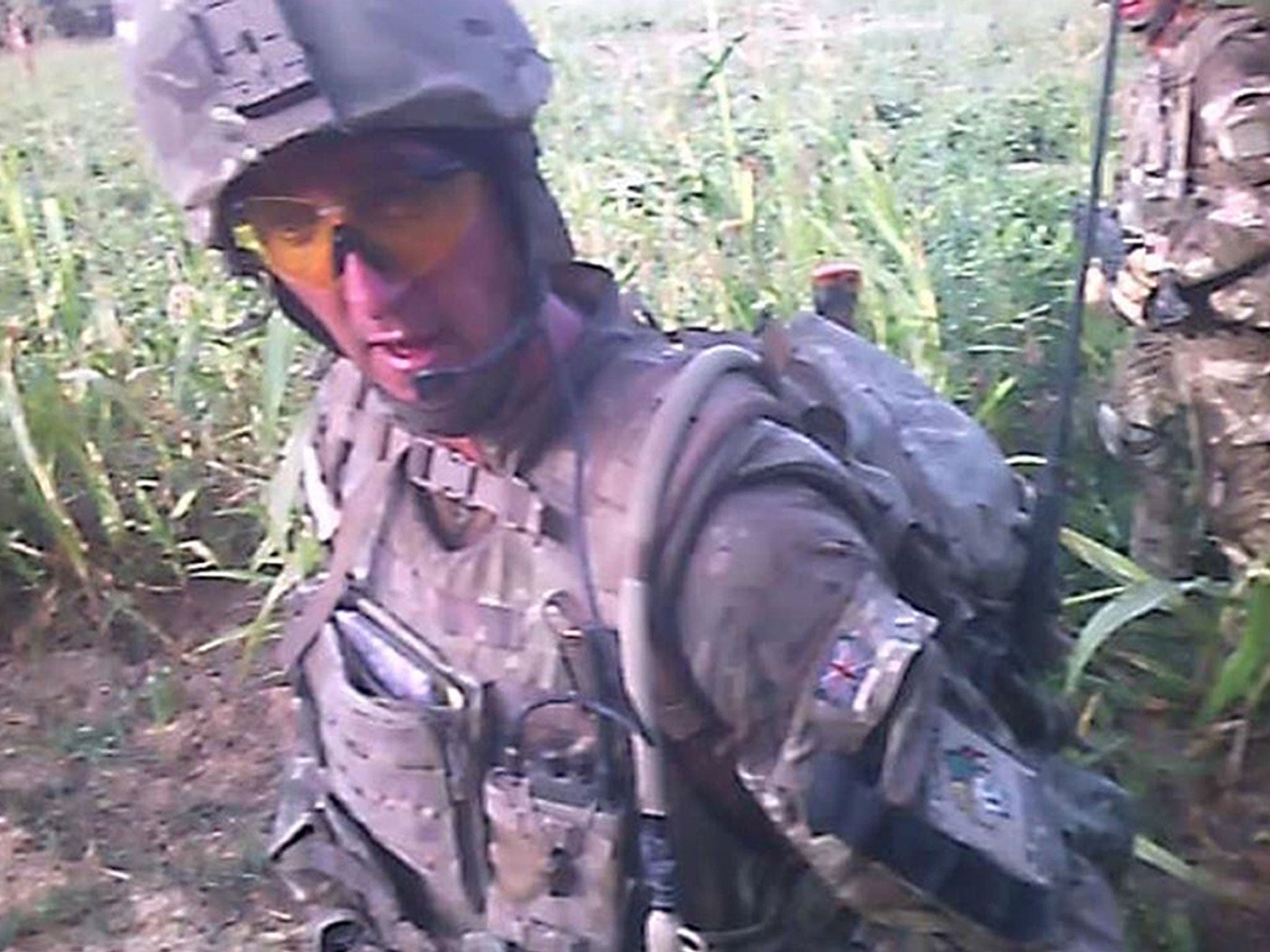Many veterans are victimised. Sergeant Alexander Blackman is not one of them
The arguments for his release are so absurd I resent having to debunk them over and again


Sergeant Alexander Blackman, formerly of the Royal Marines, is launching a new appeal against his sentence for murdering an unarmed Afghan "insurgent" in 2011. He carried out the killing while inadvertently being recorded by a comrade’s helmet-mounted camera. He quoted Hamlet as he did it.
The campaign on his behalf has gathered considerable steam over the years. It is, in my opinion, based on a number of terrible arguments and hijacks public angst over the very real hardships faced by soldiers and veterans throughout recent British history.
"There you are, shuffle off this mortal coil, you c*nt. It's nothing you wouldn't do to us," he quipped in the grainy video around which his trial hinged.
The recording of the murder, even in the limited form in which it has been made available to the public, is shocking. Because of its inhuman content, but also because of the apparently casual manner in which the wounded man was dispatched. On its own merit Blackman’s conviction is uncontroversial, an open and shut case.
Marine A, as he was known during the trial, was a highly trained, highly experienced senior NCO in one of the world’s foremost infantry units. The fact is he simply cannot have been unaware of the laws of war when he pulled the trigger with a Shakespearean flourish.
The arguments put for his release or pardon have, from the off, been so utterly ridiculous that I resent having to destroy them over and over again.
For example, the wretched idea that he is a hero, that his heroism should absolve him, or that all soldiers, sailors and airmen are somehow heroes and therefore should all be exempt from the law is so flaccid that I should not need to bring it up. Simply put, it is the kind of arguments that one would only expect to hear from child.
Similarly, while I agree with his supporters that Blackman had been under pressure, that he had endured a brutal tour and that he was likely afflicted by post-traumatic stress, it is space cadet territory to suggest any of these factors could feasibly clear him of murder.
Even Blackman’s new argument that this was a “split second decision” gone wrong is dubious. Stressed, he clearly was, but he was obviously capable of reason and logic enough to urge his underlings to keep quiet because he had just broken the Geneva Convention.
Likewise the argument that he is a scapegoat of the establishment (which seems to love nothing more than a spot of extrajudicial killing, if recent drone strikes are taken into account) cannot be taken seriously given that various members of said establishment appear to be fully behind him.
In fact, his chief celebrity backer Frederick Forsythe boasted only recently of his Cold War work for MI6. Forsythe is many things, including a writer of decent thrillers, but he is hardly anti-establishment.
Likewise, Blackman has enjoyed the support of renowned establishment yes-man former colonel Richard Kemp, who commanded of British forces in Afghanistan in the early stages of the occupation, before it all got hairy.
I agree with parts of his latest statements from jail. "I had been sent to a brutal battlefield to fight for my country in an unpopular war,” he says. All true, in my opinion. A pointless, failed, imperial war driven by hubris and arrogance, and conducted to the detriment of the Afghan people, I’d add.
But there is something more at play here, and there is a hint of truth in his complaint, a truth which is being badly abused in an attempt to get the 41-year old soldier released.
They are playing on the idea of the British soldier as a victim, and while Blackman does not qualify in this case, he and many other veterans do in any number of ways.
The idea has weight. British soldiers have always been, and continue to be, stitched up by those who manage them.
The briefest glance through the history books will tell you that the many of the ‘heroes’ of battles as diverse as Waterloo, Rorke’s Drift and the Somme came home to poverty, hardship, mental breakdown and destitution.
This betrayal is expressed today through the thousands of homeless veterans on our streets and a recent spike of veteran suicides. That military men and women are betrayed by their masters is not in question, but as far as Alexander Blackman’s murder conviction goes he is no victim. He is a perpetrator.
Join our commenting forum
Join thought-provoking conversations, follow other Independent readers and see their replies
Comments